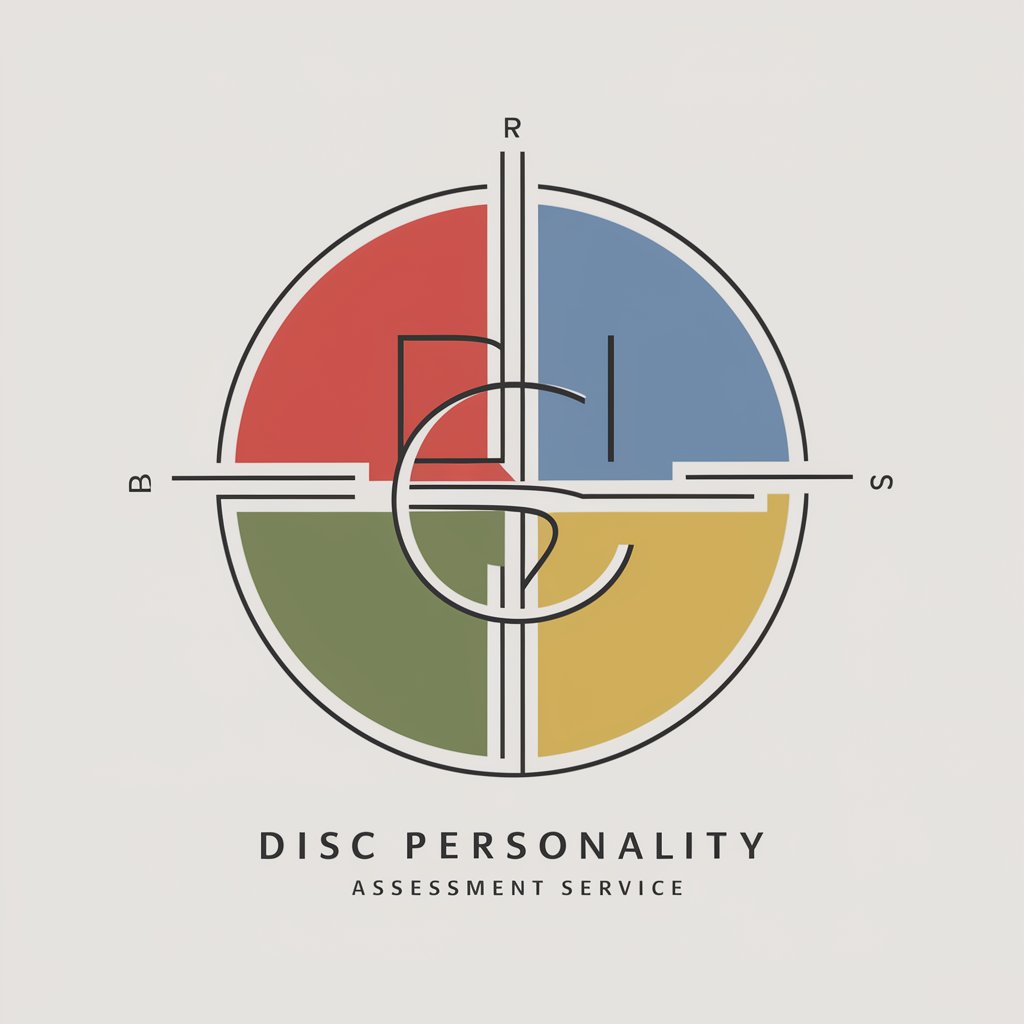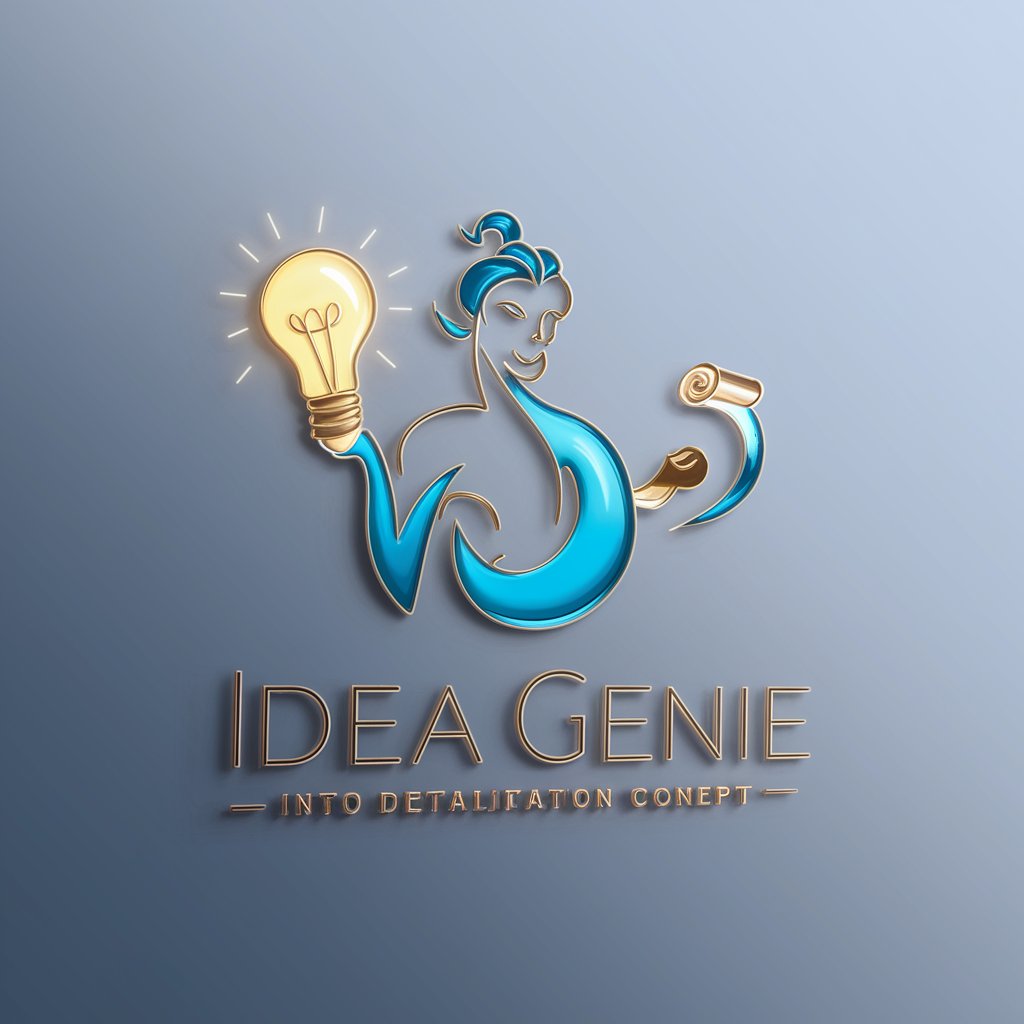DISC Psychological Text - DISC Personality Insight

Welcome to the DISC personality assessment!
Unveil Your True Potential with AI
Describe a time when you felt most dominant in a group setting.
What influences your decision-making process the most?
How do you maintain steadiness in stressful situations?
Can you share an example of a time when compliance was crucial for your success?
Get Embed Code
Introduction to DISC Psychological Text
DISC Psychological Text is designed to administer and analyze the DISC personality test, which categorizes human behavior into four types: Dominance, Influence, Steadiness, and Compliance. This model, developed by psychologist William Moulton Marston in the 1920s, is utilized to understand and predict how individuals are likely to act within given environments, thus facilitating better team dynamics, personal growth, and effective communication. For example, in a workplace setting, understanding an employee's DISC type can help in assigning roles that fit their behavioral traits, leading to increased job satisfaction and productivity. Powered by ChatGPT-4o。

Main Functions of DISC Psychological Text
Personality Testing
Example
Users complete a questionnaire that evaluates their predominant traits in terms of Dominance, Influence, Steadiness, and Compliance.
Scenario
In a corporate environment, HR departments use DISC tests to better understand potential candidates' personalities, aiding in recruitment and team composition.
Results Interpretation
Example
The system analyzes the answers to provide a detailed personality profile that highlights an individual’s strengths and areas for growth.
Scenario
Managers use DISC profiles to tailor communication and management strategies that align with individual employee motivators and behaviors.
Team Compatibility Analysis
Example
DISC Psychological Text can compare personality profiles of team members to predict team dynamics and potential conflict areas.
Scenario
A project manager can assess team compatibility, facilitating more effective team assembly and conflict resolution strategies.
Ideal Users of DISC Psychological Text
Human Resources Professionals
HR professionals can use DISC assessments to optimize recruitment processes, enhance team composition, and develop targeted training and development programs.
Team Leaders and Managers
Leaders and managers can utilize DISC data to understand their own leadership style, how it affects their team, and how to best communicate with and motivate their team members.
Individuals for Personal Development
Individuals interested in personal development can use DISC assessments to gain insights into their own behavioral styles and learn how to adapt their interactions across various social and professional situations.

How to Use DISC Psychological Text
1
Visit yeschat.ai to start using DISC Psychological Text with a free trial that does not require login or subscription to ChatGPT Plus.
2
Select the DISC test option from the main menu to begin the assessment.
3
Complete the 40-question survey, ensuring to choose the option that best aligns with your initial instincts about your personality.
4
Submit your responses to receive a detailed report categorizing your personality into Dominance, Influence, Steadiness, or Compliance traits.
5
Use the detailed insights provided to improve interpersonal relations, enhance self-awareness, and apply the findings in both personal and professional settings.
Try other advanced and practical GPTs
Idea Genie
Your AI-powered innovation partner

Mães da Resistencia
Empowering families with AI-powered support for LGBTQIAPN+ advocacy.

Élise of the Resistance
Revive History with AI-Powered Insights

Echoes of Resistance
Empowering insights on equality with AI

Software Arc
Demystifying Software Architecture with AI

Software
Empower Your Creativity with AI

Psychological Support
Empower Your Emotional Journey with AI

Nuclear Medicine Technologists Assistant
Enhancing Nuclear Medicine with AI

Nuclear Engineers Assistant
Elevate Nuclear Engineering with AI

Nuclear Technicians Assistant
Powering Nuclear Innovation with AI

Nuclear Medicine Exam Proctor
Ace Nuclear Medicine with AI

Nuclear Simulations Whiz
Empowering nuclear simulation with AI

FAQs about DISC Psychological Text
What is DISC Psychological Text?
DISC Psychological Text is a tool based on the DISC personality assessment theory, which categorizes personality traits into four major types: Dominance, Influence, Steadiness, and Compliance. It's used to enhance self-awareness and improve interpersonal relationships.
How does the DISC test help in professional settings?
The DISC assessment can help in professional settings by enabling better team dynamics, improving communication strategies, and assisting in conflict resolution by understanding the different personality types within a team.
Can DISC Psychological Text predict behavior in stressful situations?
While not a predictive tool, DISC can offer insights into likely behavior patterns based on personality traits, which can be useful in anticipating responses to stress and conflict.
Is the DISC test scientifically validated?
The DISC assessment is based on a theory from the 1920s by psychologist William Moulton Marston. It is widely used in corporate settings for its practical applications, though it should be complemented with other assessments for comprehensive psychological analysis.
How often should I retake the DISC assessment?
Retaking the DISC assessment can be beneficial if significant life changes occur or if you wish to track changes in your personality over time. However, for most individuals, taking the test every few years or as needed in professional contexts is sufficient.
